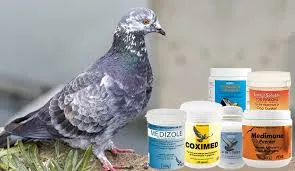
אוג . 19, 2024 14:32 Back to list
Effects of Ivermectin on Poultry Farming and Chicken Health Management Strategies
The Role of Ivermectin in Poultry Production Focusing on Chickens
Ivermectin is a widely recognized antiparasitic compound utilized in veterinary medicine and agriculture, particularly in the management of parasitic infections in livestock. Its application in poultry, especially chickens, has gained attention due to the growing concerns regarding animal health and welfare, food safety, and the sustainability of poultry farming practices. This article explores the significance of ivermectin in chicken farming, its benefits, potential drawbacks, and the importance of responsible use.
Understanding Ivermectin
Ivermectin belongs to a class of drugs called avermectins, which are derived from the bacterium Streptomyces avermitilis. It is effective against a variety of internal and external parasites, including roundworms, mites, and lice. In chickens, the drug is primarily used to control infestations of ectoparasites and endoparasites, which can have detrimental effects on the health and productivity of the birds.
Benefits of Ivermectin in Poultry Farming
One of the primary advantages of using ivermectin in chickens is its efficacy in controlling parasitic infections. Chickens infested with parasites are often subject to a range of health issues, including reduced appetite, weight loss, decreased egg production, and weakened immune systems. By effectively eliminating these parasites, ivermectin contributes to healthier birds that are more productive and less susceptible to disease.
Moreover, ivermectin has a favorable safety profile when used in recommended doses. Its broad-spectrum activity means that a single treatment can address multiple parasitic concerns, simplifying the management of chicken health and reducing the need for multiple medications.
Another significant benefit of ivermectin is its role in enhancing biosecurity on poultry farms. By controlling parasitic infestations, farmers can minimize the risk of disease transmission within flocks and between different species of livestock. This is particularly crucial in intensive farming operations where crowded conditions can easily facilitate the spread of parasites.
ivermectin on chickens factory

Challenges and Considerations
Despite its advantages, the use of ivermectin in poultry farming is not without challenges. One of the major concerns is the potential for the development of drug resistance among parasites. Overreliance on a single antiparasitic agent can lead to the emergence of resistant strains, making subsequent treatments less effective. It is essential for farmers to adopt a rotational strategy that includes different classes of antiparasitic agents to combat this issue.
Furthermore, the withdrawal period—a specified time after treatment during which the drug remains in the animal's system and should not be consumed—must be strictly adhered to. This ensures that the meat and eggs produced are safe for human consumption. Farmers need to be educated about the correct usage and administration of ivermectin to prevent violations that could affect food safety and market access.
Responsible Use and Future Directions
To maximize the benefits of ivermectin while minimizing potential drawbacks, responsible use is paramount. Farmers are encouraged to work closely with veterinarians to develop integrated pest management strategies that include regular monitoring of parasite populations and judicious use of antiparasitic drugs.
Research into alternative therapies, such as natural antiparasitics and improved husbandry practices, could also support sustainable chicken farming. By diversifying approaches to parasite control, the industry can reduce dependency on chemical treatments, protecting both animal health and food safety.
In conclusion, ivermectin plays a pivotal role in the poultry industry, particularly in the health management of chickens. While it offers significant benefits, responsible management practices are essential to prevent resistance and ensure that the use of this important drug is sustainable. As the poultry sector continues to evolve, integrating innovative strategies and maintaining a focus on animal welfare will be crucial for its future.
-
Premium Honeysuckle Products - Leading Honeysuckle Manufacturer & Supplier Factory
NewsJun.10,2025
-
Pulmonary Edema Solutions from Leading Manufacturer & Supplier Reliable Factory Price
NewsJun.10,2025
-
Red Eyes - Leading Red Eyes Manufacturer & Supplier, Premium Quality Factory Price
NewsJun.10,2025
-
Broiler Ascites Syndrome Solutions Top Manufacturers
NewsJun.10,2025
-
Premium Amoxicillin Suppliers Reliable Biomox Mexican Factories
NewsJun.10,2025
-
Top Brewing Cell Wall Solutions Optimized Efficiency
NewsJun.09,2025




